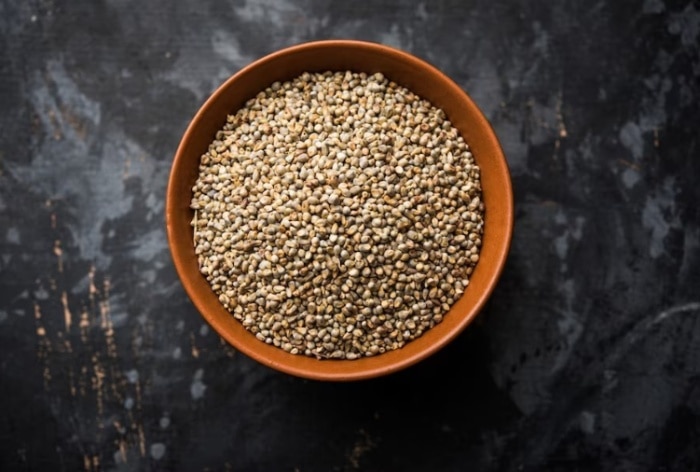Pearl Millets: Boosting heart health to controlling diabetes, here are 6 reasons why bajra can a valuable addition to your daily diet.

Bajra is a highly nutritious and versatile grain, primarily grown in Africa and India. However, it is also grown and consumed in many other places of the world. Bajra refers to the edible seeds of pearl millet plants. They grow in various shades of white, yellow, grey, brown, and bluish-purple. Known as highly nutritious and versatile grains, they consist of essential nutrients that are required to maintain a healthy body. Today, we’ll explore some of the health benefits of pearl millet aka bajra, and how to include the cereal grains in diet.
Pearl Millet/Bajara Health Benefits
- High in fibre: It is rich in dietary fibre, which aids digestion, maintains healthy blood sugar levels and keeps your stomach full, which can be beneficial for weight management. .
- Low Glycemic Index: Pearl millet has a low glycemic index, meaning it has a minimal impact on blood sugar levels. This can be especially beneficial for individuals with diabetes or those looking to manage their blood sugar.
- Heart Health: The high fibre content in bajra can contribute to cardiovascular health by reducing the risk of heart disease.
- Rich in Antioxidants: Pearl millet contains antioxidants that help combat oxidative stress and reduce the risk of chronic diseases.
- Bone Health: It is a good source of phosphorus, which is essential for maintaining healthy bones and teeth.
- Promotes Healthy Hair And Skin: Bajra is a good source of many nutrients, including protein, vitamin B6, niacin, folate, iron and zinc. These vitamins and minerals are known for contributing to healthy hair, skin and nails.
How to Include Pearl Millets in Your Diet?
- You can cook pearl millet with water or milk to make a creamy and nutritious porridge. Add sweeteners like honey, maple syrup, or fruits like bananas and berries for flavor.
- Also, you can use pearl millet flour to make chapatis, rotis, or flatbreads. Since it is gluten-free, It can be a healthier alternative to wheat flour.
- Cook pearl millet and mix it with chopped vegetables, herbs, and a dressing of your choice to create a refreshing and healthy salad.
- Make a nutritious breakfast bowl by mixing cooked pearl millet with yoghurt, nuts, seeds, and dried fruits.
- Pearl millet can be used to make snacks like popped millet or roasted millet, which are crunchy and can be healthy snack for munching.
Incorporating pearl millet into your diet can diversify your grain options and provide numerous health benefits, making it a valuable addition to a balanced diet.
